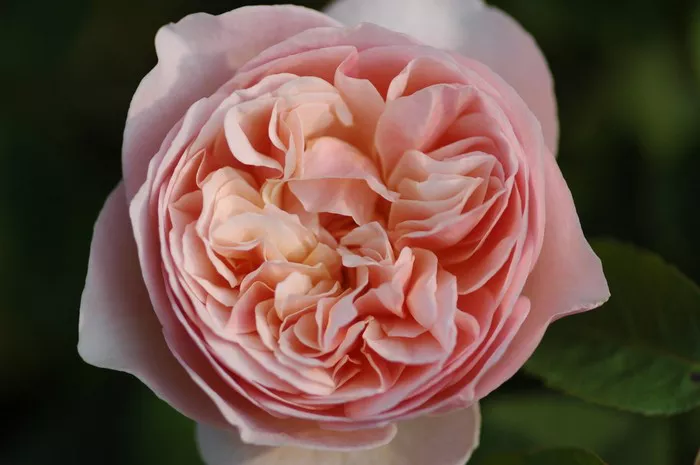Roses, with their enchanting beauty and delicate fragrance, are a cherished addition to any garden. However, the joy of cultivating these elegant flowers can be marred when bugs decide to feast on their leaves. From aphids to beetles, there are numerous pests that can wreak havoc on your rose bushes if left unchecked. Fortunately, there are effective methods to protect your roses and preserve their foliage. In this article, we explore ten strategies to stop bugs from devouring your precious rose leaves.
1. Regular Inspection
The first step in preventing bug infestations on your rose bushes is to conduct regular inspections. Take the time to carefully examine the leaves, stems, and buds for any signs of insect activity. Look for holes, chewed edges, or sticky residue, which may indicate the presence of pests such as aphids, caterpillars, or leafhoppers. Early detection allows you to intervene promptly before the infestation escalates.
2. Pruning and Cleaning
Maintaining proper hygiene in your garden can significantly reduce the risk of bug infestations. Remove and dispose of any dead or diseased foliage, as these can attract pests and serve as breeding grounds. Additionally, prune overcrowded branches to improve air circulation and minimize hiding places for insects. Regularly clean your gardening tools to prevent the spread of pathogens between plants.
3. Natural Predators
Harnessing the power of nature’s own pest control can be an effective strategy for managing bug populations in your garden. Encourage beneficial insects such as ladybugs, lacewings, and parasitic wasps, which prey on common rose pests like aphids and thrips. Planting insect-attracting flowers such as marigolds, dill, and yarrow can provide habitat and food sources for these natural predators.
4. Neem Oil
Derived from the seeds of the neem tree, neem oil is a natural insecticide and repellent that can help protect your roses from a variety of pests. Dilute neem oil according to the manufacturer’s instructions and spray it onto the foliage, covering both the tops and bottoms of the leaves. Neem oil disrupts the feeding and reproductive cycles of insects, effectively deterring them from your rose bushes.
5. Horticultural Oils
Horticultural oils, such as mineral oil or insecticidal soap, are another safe and eco-friendly option for controlling bugs on roses. These oils work by suffocating insects upon contact, making them an effective treatment for aphids, spider mites, and scale insects. Apply horticultural oils during cooler periods of the day to avoid damage to the plant tissue, and ensure thorough coverage of the affected areas.
6. Companion Planting
Strategic companion planting involves growing certain plants alongside your roses to repel or distract insect pests. For example, planting aromatic herbs like rosemary, lavender, or thyme can help mask the scent of roses, making them less attractive to bugs. Additionally, interplanting with repellent flowers such as garlic, chrysanthemums, or petunias can create a natural barrier against pests.
7. Organic Sprays
Homemade organic sprays can provide an effective defense against bugs while minimizing harm to beneficial insects and the environment. Common ingredients for DIY insecticidal sprays include garlic, chili peppers, and soap. Blend these ingredients with water and strain the mixture before spraying it onto your rose bushes. Reapply as needed, especially after rainfall or irrigation.
8. Physical Barriers
Installing physical barriers can prevent crawling insects from reaching your rose bushes and causing damage. Place collars made of cardboard or plastic around the base of each plant to deter pests like cutworms and slugs. Alternatively, use floating row covers or mesh netting to shield your roses from flying insects while still allowing sunlight and air to penetrate.
9. Diatomaceous Earth
Diatomaceous earth, a fine powder made from fossilized algae, acts as a natural desiccant and abrasive substance that can effectively control bugs on roses. Sprinkle diatomaceous earth around the base of your rose bushes and on the foliage, focusing on areas where pests are most active. As insects come into contact with the powder, it absorbs their protective waxy layer, ultimately leading to dehydration and death.
10. Chemical Treatments
When all other methods fail to control severe infestations, chemical treatments may be necessary as a last resort. However, it’s essential to exercise caution and follow the instructions provided by the manufacturer. Choose insecticides specifically formulated for roses and apply them sparingly to minimize potential harm to beneficial insects, pets, and the environment. Always wear protective gear and avoid spraying during windy conditions to prevent drift.
In conclusion, protecting your rose bushes from bug infestations requires a combination of vigilance, prevention, and intervention. By implementing these ten methods, you can effectively safeguard your roses and enjoy their beauty without the threat of hungry pests. Remember to observe and adapt your pest control strategies based on the unique conditions of your garden and the specific types of bugs affecting your roses. With patience and persistence, you can nurture healthy, pest-free rose bushes that thrive in your garden oasis.


